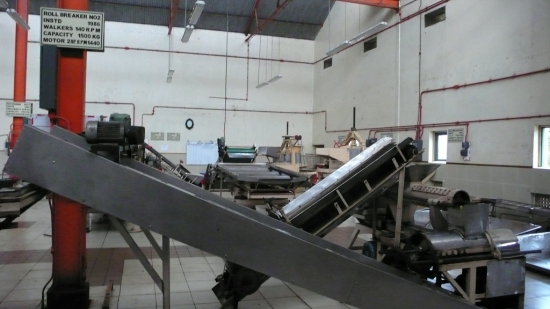The manufacturing industry is currently experiencing an upturn in the UK, with a favourable export market and high demand within the Eurozone leaving many businesses with more custom than they have seen since the pre-recession years. This has led to a large increase in the number of skilled workers being taken on within the industry, with engineers being particularly sought after.

In fact, manufacturing expanded by between 1 per cent and 1.5 per cent in the UK during the three months to September, making the past quarter the highest for growth since the second quarter of 2010. According to the Purchasing Managers Index (PMI) this had a correspondingly strong effect upon employment within the sector in September, with factory hiring climbing from 51.9 to 54 on the scale.
September’s growth also remained stable following August’s two and a half year high of 57.1, with a recorded activity level of 56.7. As any reading above 50 signals growth, this is extremely positive news for a sector which only left recession in the first half of 2013.
Chief economist at manufacturers’ organisation EEF, Lee Hopley, believes that last month’s figures build upon the strong results for August and indicate further growth within the sector.
He says; “This is another solid month for manufacturing with output, orders and employment all up, paving the way for a decent quarter of growth across the sector.
“The good run of indicators should continue beyond the end of this year with some expansion in manufacturing taking place in Europe, Asia and the US.”
However, over the past three months, input costs have risen sharply, in part thanks to the static interest rates imposed by the Bank of England.
Fortunately, James Knightley of ING Financial Markets believes that the consistently strong results will force the bank to lift interest rates earlier than the current proposed date of 2016.
He says; “Price pressures appear to be growing as output prices are at two year highs with firms able to pass on rising input costs and expand margins at the same time.
“So with both the employment and inflation components pointing to the upside it will reinforce market expectations of monetary policy tightening coming in early 2015.”
Should the Bank of England ease the current strict interest rate and therefore allow manufacturing firms to build up capital, this will in turn give many businesses the opportunity to expand both their premises and workforce in order to better cope with an increasing domestic demand.
However, as pointed out by Sir James Dyson last month, the next hurdle will be ensuring the UK has adequate numbers of skilled workers to fill the roles that so many small, medium and multi-national firms continue to create.